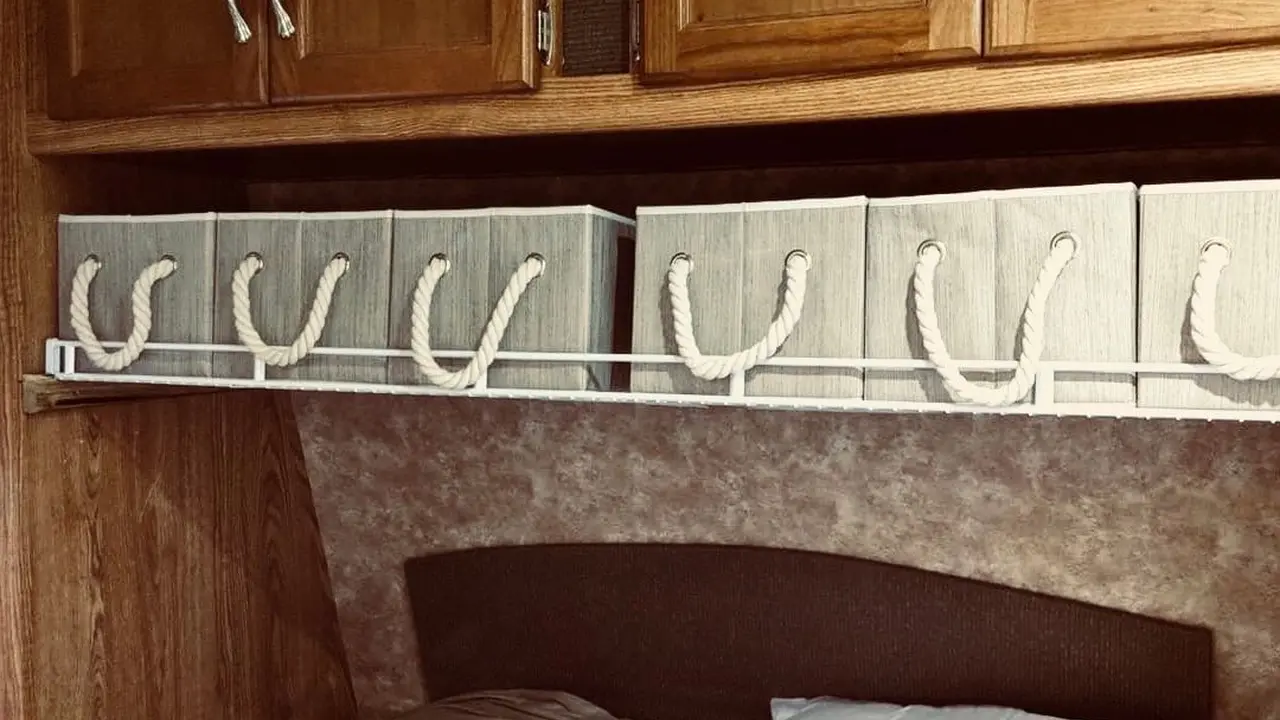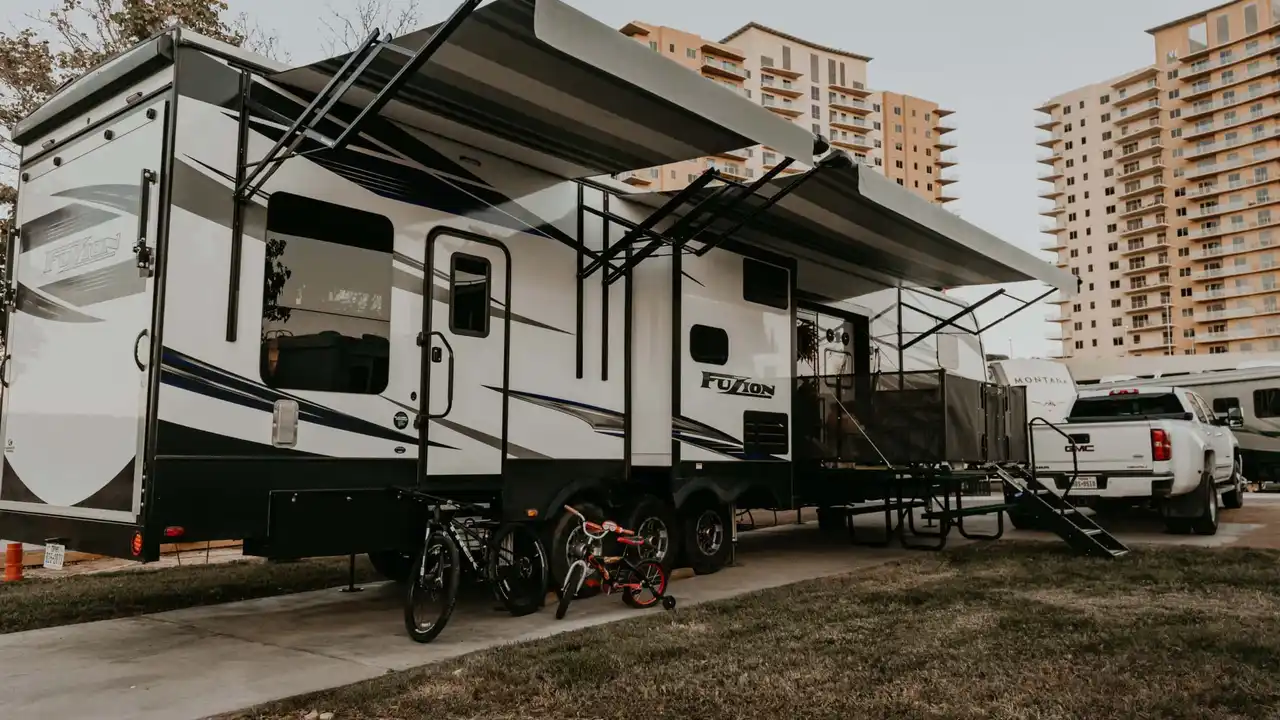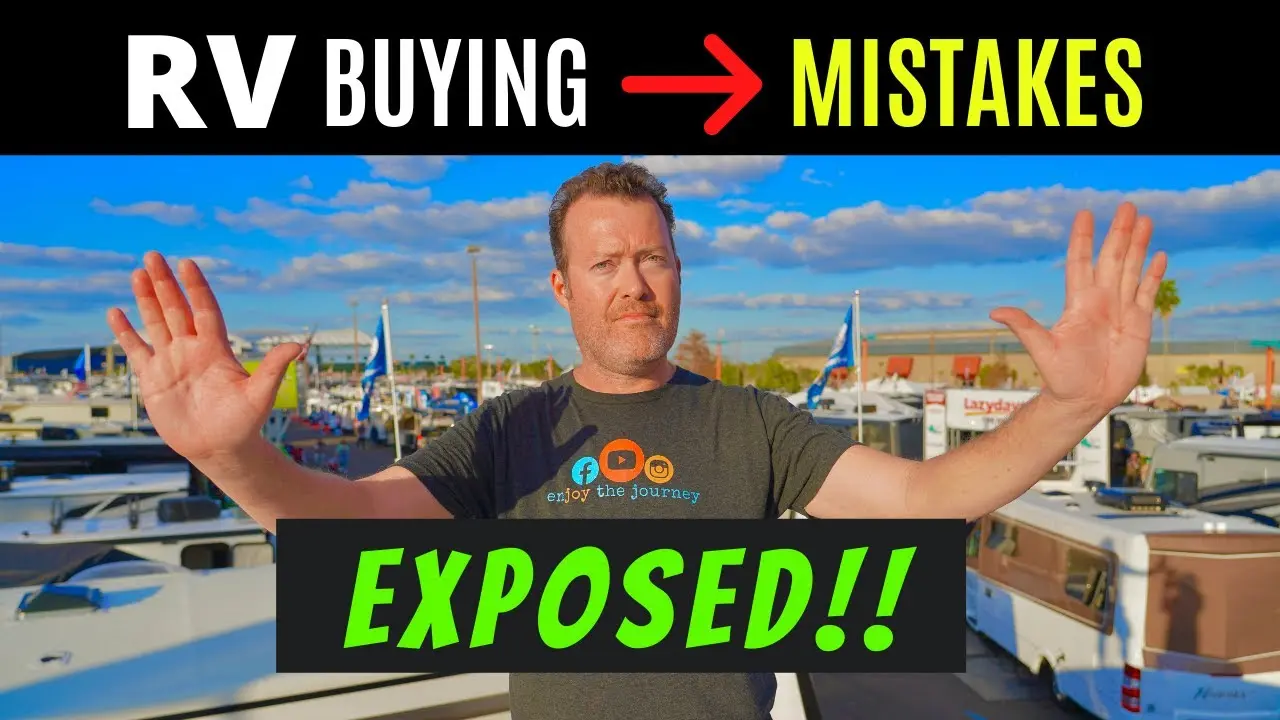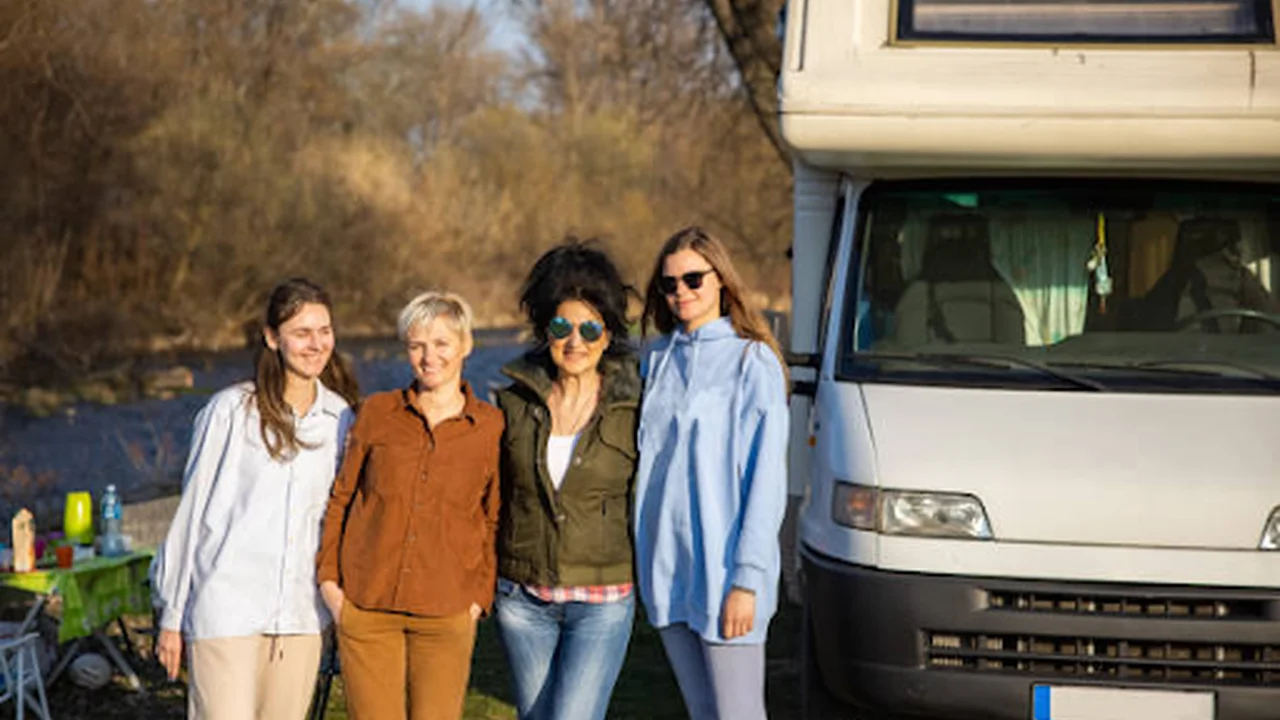RV vs. Traditional Home: Which is Right for You?
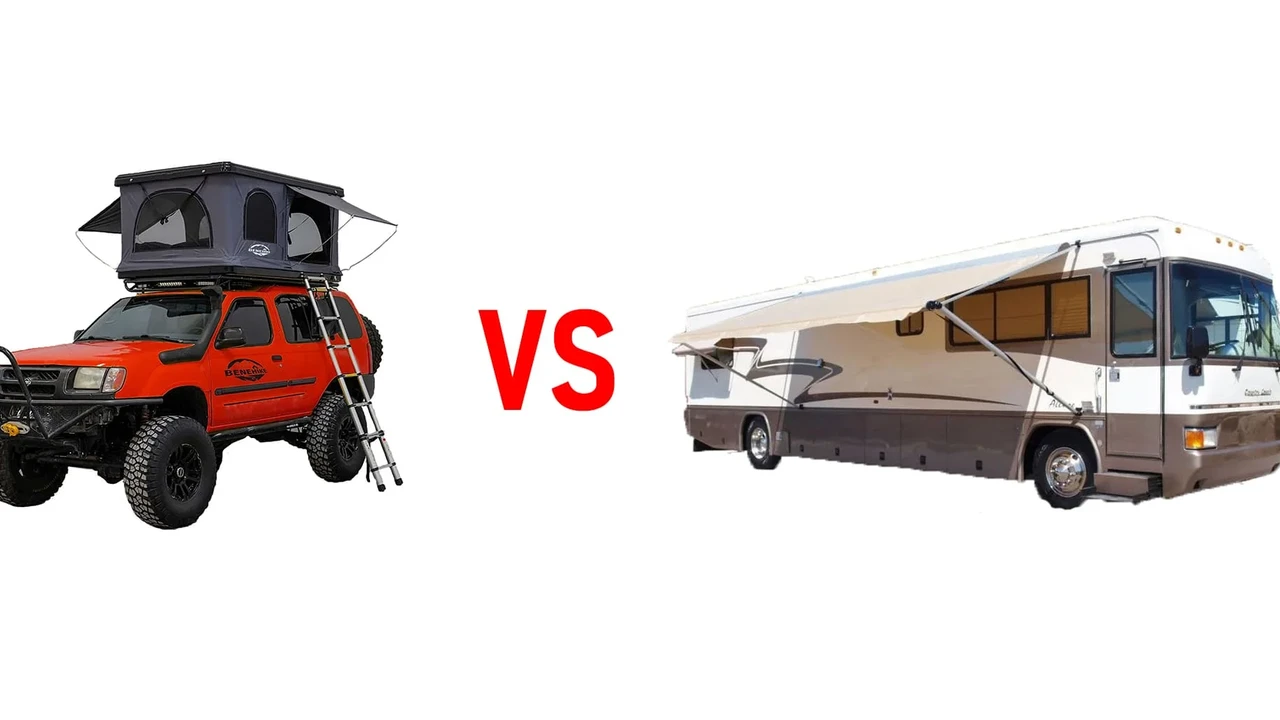
Understanding the RV Lifestyle A Comprehensive Guide
So you're thinking about hitting the open road, trading in the picket fence for the boundless horizon? The RV lifestyle is calling your name, and it's easy to see why. The freedom, the adventure, the ability to wake up to a different view every day – it's a dream for many. But before you sell everything and buy that gleaming new Class A motorhome, let's dive deep into what the RV lifestyle truly entails. This isn't just about vacations; it's about a way of life.
Different Types of RVs Choosing the Right One for You
First things first, the world of RVs is vast and varied. It's not a one-size-fits-all situation. Understanding the different types of RVs is crucial to finding the perfect fit for your needs and budget. Let's break down the major categories:
Class A Motorhomes The Luxury Liners
These are the big boys (and girls) of the RV world. Built on a commercial bus or truck chassis, Class A motorhomes offer the most space, amenities, and luxury. Think full kitchens, bathrooms, multiple bedrooms, and entertainment systems. They're essentially apartments on wheels. But with great size comes great responsibility (and cost!). Class A motorhomes are the most expensive RV option and require more driving skill and larger campsites.
Example: The Winnebago Adventurer. Known for its reliability and comfortable interiors, the Adventurer offers a range of floorplans to suit different needs. Pricing typically starts around $200,000 and goes up depending on the options.
Use Case: Perfect for full-time RVers, families who want plenty of space, or those who prioritize comfort and luxury.
Class B Motorhomes Camper Vans The Nimble Explorers
Also known as camper vans, Class B motorhomes are built on van chassis. They're smaller and more maneuverable than Class A motorhomes, making them ideal for exploring national parks, navigating city streets, and fitting into smaller campsites. While they offer less space, they still provide essential amenities like a bed, kitchenette, and sometimes a toilet and shower.
Example: The Roadtrek Zion. A popular choice for its compact size and versatility, the Zion offers a comfortable living space with a well-equipped kitchen and bathroom. Prices typically range from $120,000 to $160,000.
Use Case: Ideal for solo travelers, couples, or anyone who values agility and ease of parking.
Class C Motorhomes The Family Favorites
Class C motorhomes are built on a cutaway van chassis, with an over-cab sleeping area. They offer a good balance of space, amenities, and affordability, making them a popular choice for families. They're typically easier to drive than Class A motorhomes and offer more living space than Class B vans.
Example: The Thor Motor Coach Chateau. A well-regarded Class C, the Chateau offers multiple floorplans with sleeping arrangements for families. Prices typically range from $80,000 to $120,000.
Use Case: Perfect for families who want a comfortable and affordable RV for weekend getaways and longer trips.
Travel Trailers The Towable Titans
Travel trailers are towed behind a truck or SUV. They come in a wide range of sizes and floorplans, from small teardrop trailers to large fifth-wheel trailers. Travel trailers offer a lot of flexibility, as you can unhitch them at your campsite and use your tow vehicle for exploring. They're also generally more affordable than motorhomes.
Example: The Airstream Bambi. An iconic travel trailer known for its stylish design and durable construction. The Bambi is a smaller, more lightweight option, making it easy to tow. Prices typically start around $50,000.
Use Case: A good choice for those who already own a suitable tow vehicle and want a flexible and affordable RV option.
Fifth-Wheel Trailers The Spacious Suites
Fifth-wheel trailers are similar to travel trailers, but they have a special hitch that connects to the bed of a pickup truck. This hitch provides a more stable and secure towing experience. Fifth-wheel trailers are typically larger and offer more living space than travel trailers.
Example: The Grand Design Reflection. A luxurious fifth-wheel trailer with spacious interiors and high-end amenities. Prices typically range from $60,000 to $100,000.
Use Case: Ideal for those who want a spacious and comfortable RV for extended stays and have a suitable pickup truck for towing.
Pop-Up Campers The Lightweight Wonders
Pop-up campers are lightweight trailers that fold down for easy towing and storage. They're a great option for those who want a basic camping experience without the hassle of tent camping. They typically include beds, a kitchenette, and sometimes a toilet.
Example: The Forest River Rockwood Freedom. A popular pop-up camper known for its affordability and ease of use. Prices typically range from $10,000 to $20,000.
Use Case: A good choice for those who want an affordable and lightweight camping option.
RV Buying Guide New vs Used Navigating the Market
Once you've decided on the type of RV you want, the next big decision is whether to buy new or used. Both options have their pros and cons. Let's weigh them out:
Buying a New RV The Perks of Pristine
Pros:
- Warranty: New RVs come with a manufacturer's warranty, which can provide peace of mind in case of any defects or malfunctions.
- Latest Features: New RVs are equipped with the latest technology and features, such as solar panels, smart home integration, and advanced safety systems.
- Customization: You can often customize a new RV to your exact specifications, choosing the floorplan, colors, and options that you want.
- Financing: It's typically easier to get financing for a new RV than for a used one.
Cons:
- Depreciation: RVs depreciate quickly, especially in the first few years.
- Higher Price: New RVs are significantly more expensive than used ones.
- Initial Bugs: New RVs can sometimes have initial bugs or issues that need to be worked out.
Buying a Used RV The Value Proposition
Pros:
- Lower Price: Used RVs are significantly more affordable than new ones.
- Less Depreciation: You won't experience as much depreciation with a used RV.
- Upgrades: Many used RVs have already been upgraded with aftermarket accessories.
Cons:
- No Warranty: Used RVs typically don't come with a warranty, so you're responsible for any repairs.
- Wear and Tear: Used RVs may have wear and tear from previous use.
- Outdated Features: Used RVs may not have the latest technology and features.
- Financing: It can be more difficult to get financing for a used RV.
Thorough Inspection Tips for Used RVs
If you decide to buy a used RV, it's crucial to have it thoroughly inspected by a qualified RV technician. Here are some things to look for:
- Water Damage: Check for water stains, mold, and mildew, especially around windows, doors, and vents.
- Roof Condition: Inspect the roof for cracks, leaks, and damage.
- Tire Condition: Check the tires for wear and tear, and make sure they're properly inflated.
- Appliance Functionality: Test all appliances, such as the refrigerator, stove, and air conditioner.
- Electrical System: Inspect the electrical system for any shorts or problems.
- Plumbing System: Check the plumbing system for leaks and clogs.
- Frame and Suspension: Inspect the frame and suspension for any damage or rust.
RV Financing Options Budgeting for the Open Road
Financing an RV is similar to financing a car or a home. You'll need to get pre-approved for a loan and then shop around for the best interest rate and terms. Here are some financing options to consider:
RV Loans Traditional Financing
RV loans are typically offered by banks, credit unions, and RV dealerships. They usually require a down payment and have a fixed interest rate and repayment term.
Personal Loans Unsecured Options
Personal loans are unsecured loans that can be used for any purpose, including buying an RV. They typically have higher interest rates than RV loans, but they may be a good option if you have a low credit score.
Home Equity Loans Leveraging Your Home
Home equity loans allow you to borrow against the equity in your home. They typically have lower interest rates than RV loans, but they require you to put your home at risk.
RV Loan Calculator Estimating Your Payments
Use an RV loan calculator to estimate your monthly payments based on the loan amount, interest rate, and repayment term.
RV Insurance Protecting Your Investment on the Road
RV insurance is essential for protecting your investment and yourself while traveling. It covers damage to your RV, liability for accidents, and other risks. Here are some types of RV insurance to consider:
Liability Insurance Covering Accidents
Liability insurance covers bodily injury and property damage that you cause to others in an accident.
Collision Insurance Repairing Your RV
Collision insurance covers damage to your RV caused by an accident, regardless of who is at fault.
Comprehensive Insurance Protecting Against Other Risks
Comprehensive insurance covers damage to your RV caused by things like theft, vandalism, fire, and natural disasters.
Uninsured/Underinsured Motorist Insurance Protection Against Negligence
Uninsured/underinsured motorist insurance covers your medical expenses and property damage if you're hit by an uninsured or underinsured driver.
Full-Time RV Insurance Comprehensive Coverage for Full-Timers
Full-time RV insurance is designed for those who live in their RV full-time. It provides more comprehensive coverage than standard RV insurance.
RV Camping Essentials Gear Up for Adventure
Before you hit the road, you'll need to stock up on essential RV camping gear. Here's a checklist to get you started:
RV Leveling Blocks Ensuring Stability
Leveling blocks are used to level your RV at campsites that are not perfectly level.
Wheel Chocks Preventing Movement
Wheel chocks prevent your RV from rolling while it's parked.
Water Hose and Filter Clean Water Access
A water hose and filter are used to connect your RV to a water source at campsites.
Sewer Hose and Fittings Waste Disposal
A sewer hose and fittings are used to dispose of waste from your RV's holding tanks.
Electrical Adapter Connecting to Power
An electrical adapter is used to connect your RV to different types of electrical outlets at campsites.
RV Toilet Paper Septic-Safe Solution
RV toilet paper is designed to break down quickly in RV holding tanks.
First-Aid Kit Emergency Preparedness
A first-aid kit is essential for treating minor injuries and illnesses while camping.
Camp Chairs and Table Outdoor Comfort
Camp chairs and a table provide a comfortable place to relax and eat outdoors.
Grill or Camp Stove Outdoor Cooking
A grill or camp stove is used for cooking meals outdoors.
RV Maintenance Tips Keeping Your RV in Top Shape
Regular maintenance is essential for keeping your RV in top shape and preventing costly repairs. Here are some maintenance tips to follow:
Roof Inspection and Sealing Preventing Leaks
Inspect your RV's roof regularly for cracks and leaks, and seal any damage promptly.
Tire Pressure Monitoring Ensuring Safety
Check your RV's tire pressure regularly and inflate them to the recommended pressure.
Battery Maintenance Extending Battery Life
Clean your RV's battery terminals regularly and check the water level in the battery.
Appliance Servicing Ensuring Proper Function
Have your RV's appliances serviced regularly by a qualified technician.
Winterizing Your RV Protecting Against Freezing Temperatures
Winterize your RV properly before storing it for the winter to prevent damage from freezing temperatures.
RV Destinations Planning Your Dream Trip
The best part about owning an RV is the freedom to travel wherever you want. Here are some popular RV destinations to consider:
National Parks Exploring America's Treasures
National parks offer stunning scenery, hiking trails, and wildlife viewing opportunities.
State Parks Affordable Camping Options
State parks offer a variety of camping options, from primitive campsites to full-hookup RV sites.
Private Campgrounds Amenities and Convenience
Private campgrounds offer amenities like swimming pools, playgrounds, and laundry facilities.
Boondocking Off-Grid Adventures
Boondocking is camping without hookups, typically in remote areas.
RV Clubs and Communities Connecting with Fellow RVers
Joining an RV club or community is a great way to connect with fellow RVers, share tips, and get discounts. Here are some popular RV clubs and communities:
Good Sam Club Discounts and Resources
The Good Sam Club offers discounts on camping, RV insurance, and other services.
Escapees RV Club Community and Support
Escapees RV Club is a community for full-time RVers.
FMCA Family Motor Coach Association
FMCA is an association for motorhome owners.
RV Living Full-Time Embracing the Nomadic Life
Full-time RV living is a growing trend. It offers freedom, flexibility, and a chance to see the world. But it also requires careful planning and preparation. Here are some things to consider before making the leap to full-time RV living:
Downsizing Your Possessions Minimizing Clutter
You'll need to downsize your possessions significantly before moving into an RV.
Establishing a Domicile Establishing Residency
You'll need to establish a domicile, which is your legal residence.
Managing Finances Budgeting for the Road
You'll need to create a budget and manage your finances carefully.
Staying Connected Staying in Touch
You'll need to find ways to stay connected with family and friends.
RV Technology Staying Connected on the Go
Technology plays an important role in RV living. Here are some essential RV technology tools:
Mobile Internet Access Staying Online
Mobile internet access is essential for staying connected on the road.
GPS Navigation Finding Your Way
GPS navigation helps you find your way to your destination.
RV-Specific Apps Planning Your Route
RV-specific apps provide information on campgrounds, dump stations, and other resources.
Solar Power Generating Your Own Electricity
Solar power can help you generate your own electricity while boondocking.
RV Safety Tips Ensuring a Safe Journey
Safety should always be a top priority when RVing. Here are some safety tips to follow:
Pre-Trip Inspection Avoiding Problems
Perform a pre-trip inspection of your RV before each trip.
Safe Driving Practices Responsible Driving
Practice safe driving habits, such as maintaining a safe following distance and avoiding distractions.
Weather Awareness Monitoring Conditions
Be aware of the weather conditions and avoid driving in severe weather.
Emergency Preparedness Planning for the Unexpected
Have an emergency plan in place and know what to do in case of an accident or breakdown.
RV Storage Options Protecting Your RV When Not in Use
When you're not using your RV, you'll need to store it properly to protect it from the elements. Here are some RV storage options:
Covered Storage Protection from the Elements
Covered storage provides protection from the sun, rain, and snow.
Indoor Storage Maximum Protection
Indoor storage provides the best protection from the elements.
Outdoor Storage Affordable Option
Outdoor storage is the most affordable option, but it provides the least protection.
RV Rental Exploring the Lifestyle Before Buying
If you're not sure if the RV lifestyle is right for you, consider renting an RV before buying one. This will give you a chance to experience RVing firsthand and see if it's a good fit.
RV Rental Companies Finding the Right RV
There are many RV rental companies that offer a wide variety of RVs for rent.
Rental Tips Planning Your Trip
Plan your trip carefully and read the rental agreement thoroughly before renting an RV.
RV Community Etiquette Respecting Fellow Campers
Being a good neighbor is important in the RV community. Here are some etiquette tips to follow:
Quiet Hours Respecting Others
Observe quiet hours at campgrounds.
Campground Cleanliness Maintaining a Clean Campsite
Keep your campsite clean and tidy.
Pet Etiquette Responsible Pet Ownership
Clean up after your pets and keep them on a leash.
Generator Use Minimizing Noise
Be mindful of generator use and avoid running it during quiet hours.
RV Travel with Pets Making Memories with Furry Friends
Many RVers enjoy traveling with their pets. Here are some tips for RV travel with pets:
Pet Safety Ensuring Their Well-Being
Ensure your pet's safety by using a crate or harness while traveling.
Pet-Friendly Campgrounds Finding Welcoming Locations
Choose pet-friendly campgrounds.
Pet Health Maintaining Their Health
Bring your pet's health records and medications with you.
Pet Activities Keeping Them Entertained
Plan activities that your pet will enjoy.
Sustainable RVing Reducing Your Environmental Impact
Sustainable RVing is about reducing your environmental impact while enjoying the RV lifestyle. Here are some tips for sustainable RVing:
Conserving Water Reducing Water Usage
Conserve water by taking shorter showers and using water-saving appliances.
Reducing Energy Consumption Minimizing Energy Use
Reduce energy consumption by using LED lights and solar panels.
Recycling and Waste Management Proper Disposal
Recycle and dispose of waste properly.
Supporting Local Businesses Supporting Local Communities
Support local businesses and farmers markets.
RV Cooking Tips Delicious Meals on the Road
Cooking in an RV can be challenging, but it can also be fun and rewarding. Here are some RV cooking tips:
Meal Planning Planning Your Meals
Plan your meals in advance.
Easy Recipes Simple and Quick Dishes
Choose easy recipes that require minimal ingredients and cooking time.
One-Pot Meals Minimizing Cleanup
Prepare one-pot meals to minimize cleanup.
Using a Slow Cooker Convenient Cooking
Use a slow cooker for convenient and hands-off cooking.
RV Decorating Ideas Making Your RV Feel Like Home
Decorating your RV can make it feel more like home. Here are some RV decorating ideas:
Space-Saving Solutions Maximizing Space
Use space-saving solutions, such as folding furniture and storage bins.
Personal Touches Adding Personality
Add personal touches, such as photos and artwork.
Comfortable Bedding Creating a Cozy Space
Choose comfortable bedding to create a cozy sleeping space.
Lighting Creating Ambiance
Use lighting to create ambiance.
RV Travel with Kids Entertaining the Little Ones
RV travel with kids can be a great way to create lasting memories. Here are some tips for RV travel with kids:
Planning Activities Keeping Them Engaged
Plan activities to keep your kids entertained.
Packing Essentials Bringing the Right Items
Pack essentials, such as toys, books, and games.
Creating a Routine Providing Structure
Create a routine to provide structure and stability.
Making Memories Creating Lasting Experiences
Focus on making memories and enjoying the experience.
RV Travel for Seniors Enjoying the Golden Years on the Road
RV travel is a popular option for seniors. Here are some tips for RV travel for seniors:
Choosing the Right RV Selecting the Appropriate Model
Choose an RV that is easy to maneuver and comfortable to live in.
Planning for Health Considerations Addressing Health Needs
Plan for health considerations, such as medications and mobility issues.
Taking Breaks Avoiding Fatigue
Take frequent breaks to avoid fatigue.
Enjoying the Journey Savoring the Experience
Focus on enjoying the journey and savoring the experience.
:max_bytes(150000):strip_icc()/277019-baked-pork-chops-with-cream-of-mushroom-soup-DDMFS-beauty-4x3-BG-7505-5762b731cf30447d9cbbbbbf387beafa.jpg)



